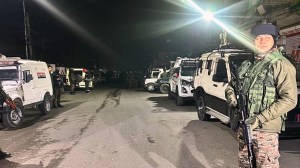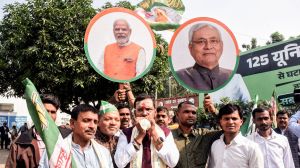Interest rates to shoot up — I-Sec
NEW DELHI, APR 21: High government borrowing coupled with rising inflation could lead to higher interest rates in the current fiscal, ICIC...

NEW DELHI, APR 21: High government borrowing coupled with rising inflation could lead to higher interest rates in the current fiscal, ICICI Securities (I-Sec) has said.
"Combined with large size government borrowings programme of Rs 1,17,000 crore in the current fiscal putting pressure on liquidity and expectation of rise in inflation and volatility in forex markets could lead to higher interest rates," I-Sec said in its latest fortnightly debt markets update.
Inflation is another major factor driving interest rates,it said referring to the falling inflation rate last year that led to lowering of interest rates.
It said liquidity would be tight through the year even after cut in Cash Reserve Ratio (CRR) by another one per cent.
RBI, early this year, had reduced bank rate by 100 basis points to seven per cent from eight per cent and CRR by one per cent to eight from nine.
Expecting these kind of scenarios, I-Sec expects the 10-year rate on government securities to move towards 10.75-11 per cent during the course of year from the current level of 10.27 per cent, a rise of 73 basis points.
The credit-deposit ratio at 63 per cent was significantly higher than the 34-46 per cent range in the last three years, I-Sec said, adding the ratio was 73 per cent if banks’ investments in commercial papers, bonds and debentures are taken into account.
The I-Sec report also hinted at a higher credit offtake this year in the wake of economic recovery as indicated by the index of industrial production (IIP) growth of 7.9 per cent in the first 11 months of 1999-2000, that led to credit growth at 21.9 per cent outpacing deposit growth of 17.9 per cent.
It said that inflation rates now appears to have bottomed out and is likely to stabilise between 4-4.5 per cent during the next few months, but could move to near six per cent in the latter part of fiscal year.
“Though we do not foresee a sharp increase in the next couple of months, inflation in the second half of 2000-01 would be critically dependent on monsoon rains and crop output,” it said, adding prices in manufacturing sector may creep up if economic growth sustains and demand picks up.
About forex market, the report said the country’s foreign currency reserves which grew by $ 5.5 billion (around Rs 27,512 crore) last year led to a spurt in liquidity.
Foreign currency reserves in the last nine months was to the tune of $ 4.5 billion. "If the inflows slow down, there could be further pressure on liquidity," it said.
I-Sec said that though forex inflows have been strong and another additional Rs 3,600 crore is due to CRR cut, this does not explain the extent of liquidity.


- 01
- 02
- 03
- 04
- 05





























